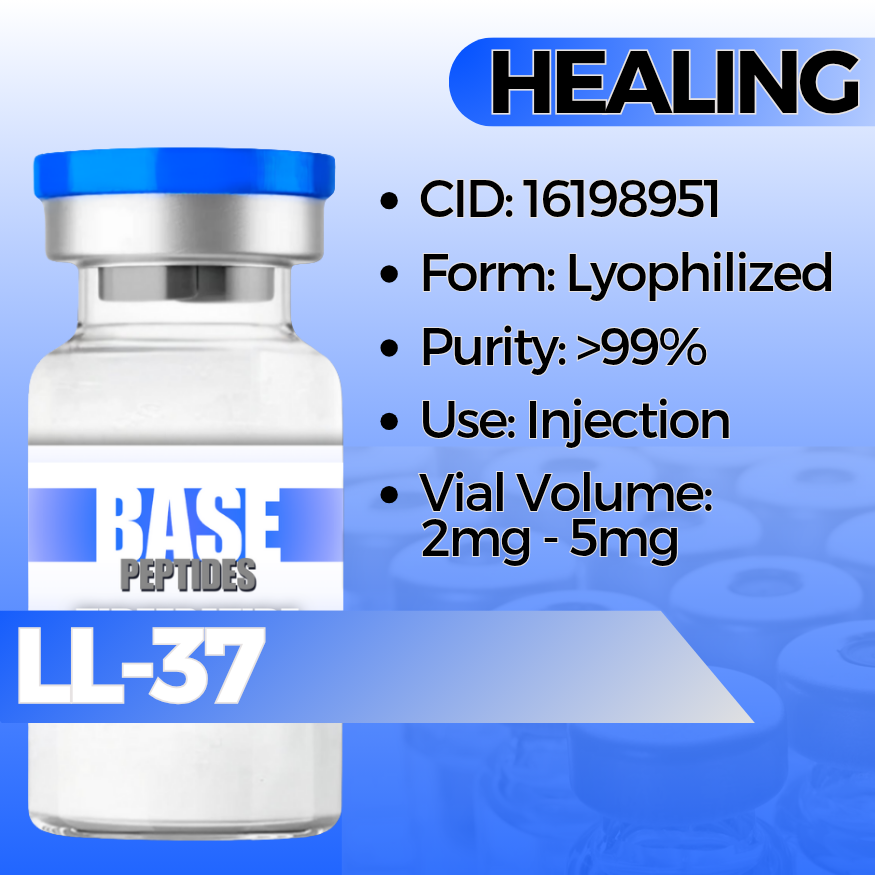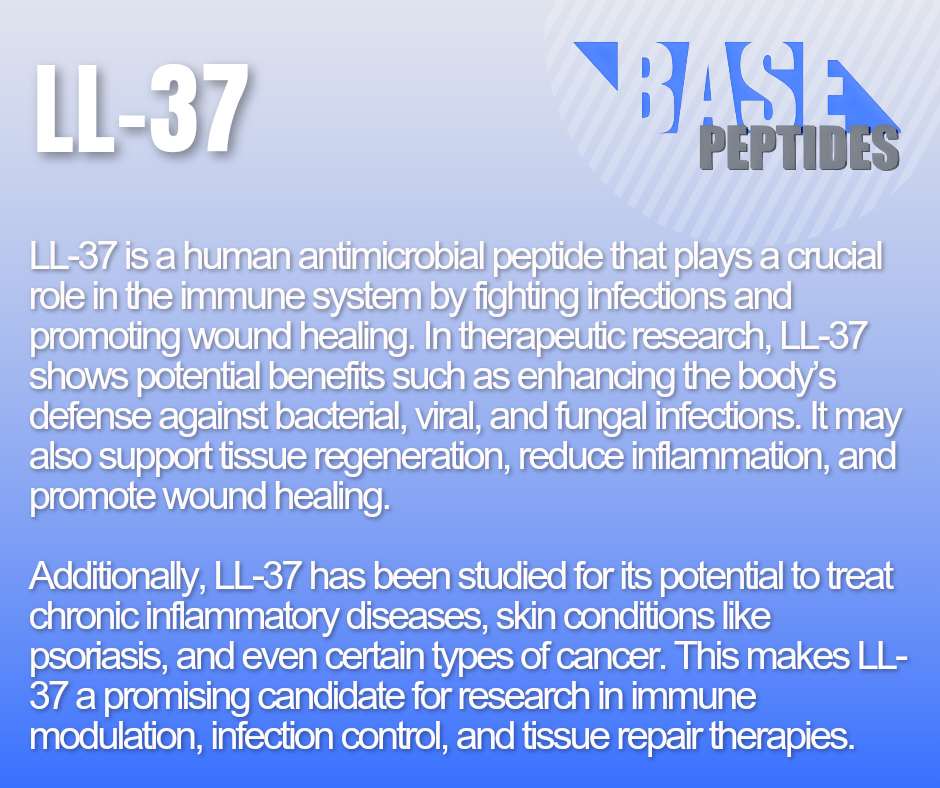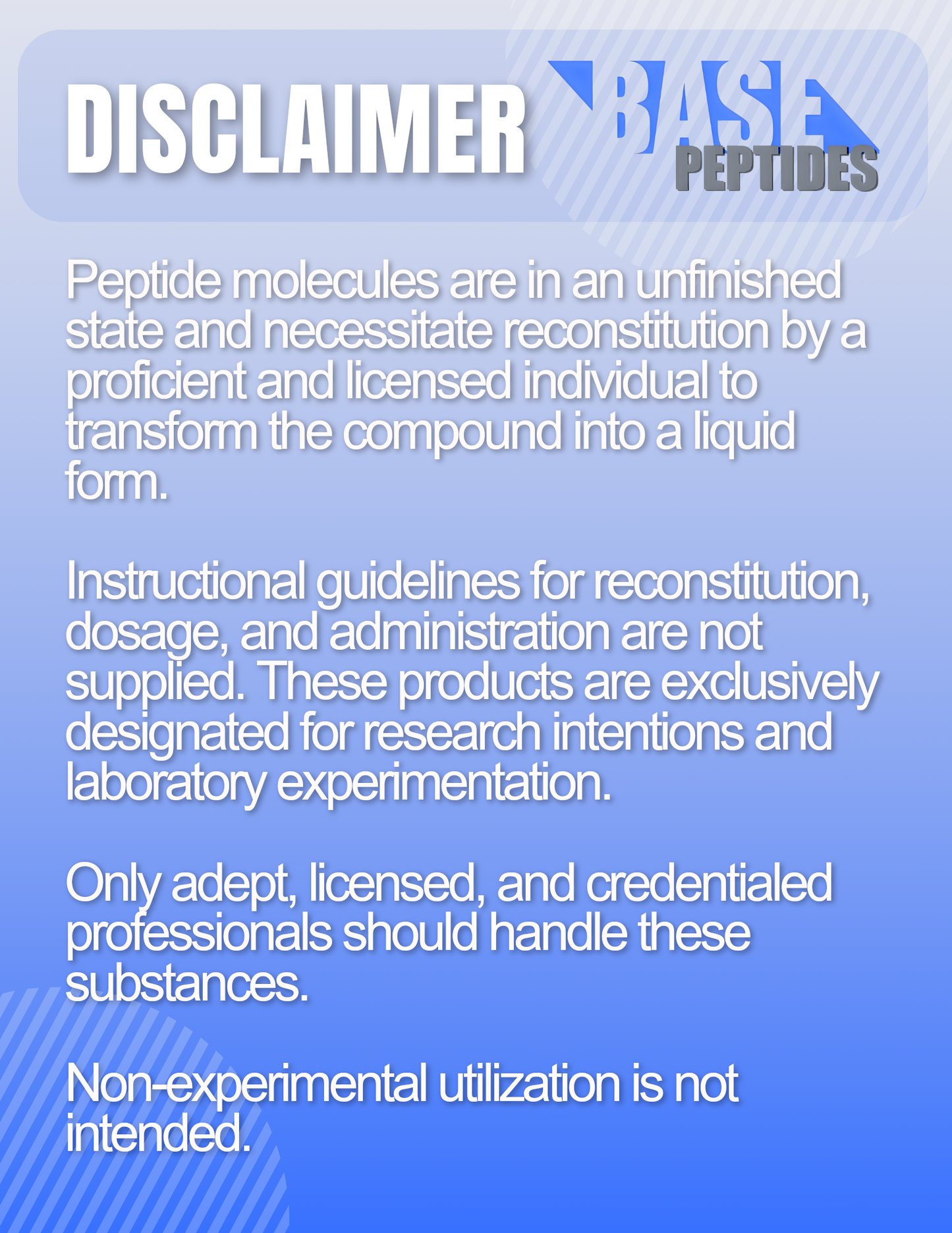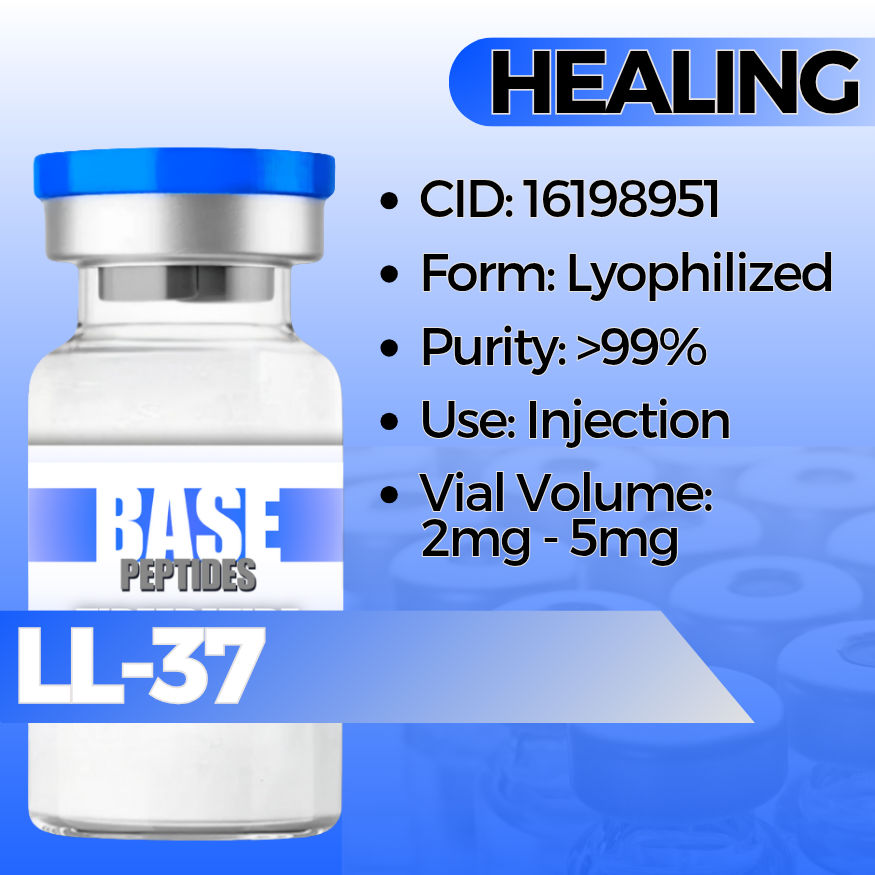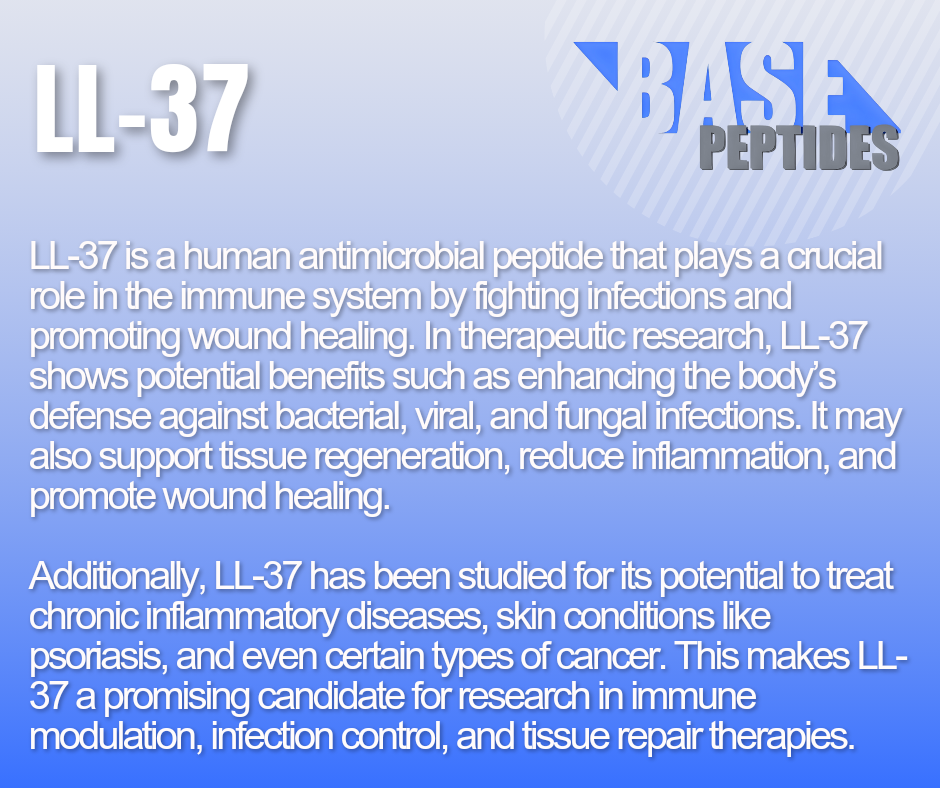LL-37
LL-37
Base Peptides are intended for licensed medical professionals and experienced researchers. Reconstitution required. Dosing and use instructions are not provided.
Regular price
$50.00
Regular price
Sale price
$50.00
Shipping calculated at checkout.
Quantity
Couldn't load pickup availability
LL-37 — Human Cathelicidin Antimicrobial Peptide (37 aa)
LL-37 is the active, 37-amino-acid fragment released from the human cathelicidin precursor hCAP-18. Researchers use LL-37 to study innate immune defense, epithelial repair, and host–pathogen interactions in vitro and in vivo.
Identifiers
- CAS: 154947-66-7
- PubChem CID: 16198951
- Formula / MW: C205H340N60O53 · ≈ 4493 Da
- Sequence (human): LLGDFFRKSKEKIGKEFKRIVQRIKDFLRNLVPRTES
- Origin: C-terminal peptide generated from hCAP-18 (CAMP gene) by proteolytic processing
How It Works (Plain English)
- Amphipathic helix: LL-37 forms a curved α-helix that can interact with and disrupt microbial membranes, a classic innate-defense mechanism.
- Immunomodulation: Beyond direct microbe effects, LL-37 can tune pattern-recognition pathways and inflammatory signaling in host cells.
- Tissue context: It’s studied in epithelial models (skin, airway) for roles in wound repair and barrier defense.
Why Researchers Use It
- To map host–pathogen interactions and membrane-active peptide biology.
- To examine immune signaling (chemotaxis, cytokine modulation) in epithelial and myeloid cells.
- To explore repair and angiogenic markers in wound-healing models.
Key Studies — What Was Tested, What Changed, Why It Matters
Host defense & membrane interaction
- What was tested: Structure and membrane binding of LL-37 in model membranes and micelles.
- What changed: A helix–bend–helix topology spanning residues ~2–31 promotes amphipathic surface binding and membrane disruption. )
- Why it matters: Explains how LL-37 combines direct antimicrobial activity with signaling at host membranes.
Immunomodulation in epithelial/myeloid cells
- What was tested: TLR-linked pathways and cytokine readouts after LL-37 exposure.
- What changed: Context-dependent tuning of inflammatory responses (e.g., TLR2/4) and chemotaxis.
- Why it matters: Positions LL-37 as more than an antimicrobial—it's a host-response coordinator.
Wound repair / angiogenesis context
- What was tested: Epithelial wound models and corneal/skin systems.
- What changed: Signals consistent with barrier repair, epithelial migration, and pro-angiogenic activity. [oai_citation:12‡Anaspec]
- Why it matters: Supports use of LL-37 in epithelial defense and healing research designs.
Potential Research Applications
Innate Immunity
- Host–pathogen interaction assays
- TLR signaling & chemotaxis panels
Barrier & Wound Models
- Epithelial migration and re-epithelialization
- Angiogenic and matrix-remodeling markers
Peptide Mechanism
- Helix formation, membrane binding, and peptide–lipid interactions
- Salt/form comparisons (e.g., trifluoroacetate vs acetate)
Synergistic Peptides (for Study Design)
BPC-157
- Why pair: Often used in epithelial repair models; complements LL-37’s barrier-defense role.
- Angle: Co-culture migration + cytokine endpoints.
TB-500 (Thymosin-β4 fragment)
- Why pair: Cell motility/cytoskeleton focus useful alongside antimicrobial/immune signaling.
- Angle: Matrix and angiogenic markers with wound-closure assays.
Tα1 (Thymosin-α1)
- Why pair: Innate→adaptive immune coordination; contrast with LL-37’s epithelial/innate emphasis.
- Angle: Th1/Th2 cytokine profiling with epithelial barrier metrics.
Design Notes
- Report salt form (e.g., TFA vs acetate) and vehicle; these can affect cell responses.
- Include dose–response and time-course sampling—LL-37’s effects are context-dependent.
- Use standardized serum/media to reduce cytokine baseline noise.
Known Concerns (Context)
- Concentration effects: At higher μM ranges, LL-37 can be cytotoxic to mammalian cells in some models—plan viability controls.
- Assay variability: Outcomes depend on ionic strength, serum, and lipid composition; document conditions carefully.
- General: Research use only; not for human consumption or therapeutic use.
Specifications & Handling
- Form: Lyophilized powder (lot-coded)
- Purity: ≥ 99% (HPLC/MS verified)
- Storage: ≤ −20 °C; protect from light/moisture
- In solution: Aliquot promptly; avoid repeat freeze–thaw
- Additives: None unless specified per lot
- Packaging: Tamper-evident; research-only labeling
Regulatory & Use Notice
Sold for laboratory research use only. Not for human consumption, medical, or veterinary use. No human-use instructions are provided. Buyer is responsible for safe handling and regulatory compliance.
LL-37 Peptide Research | Human Cathelicidin (hCAP-18 Derived) | Innate Immunity, Epithelial Repair & Host–Pathogen Studies
